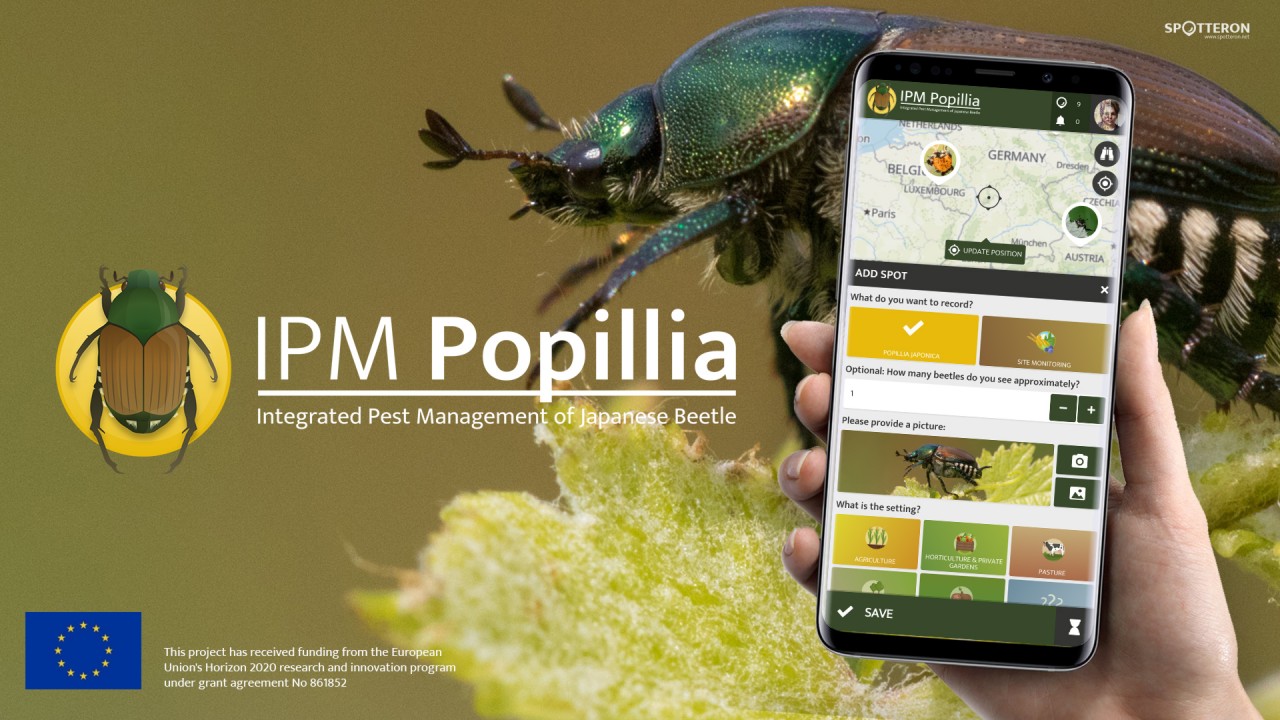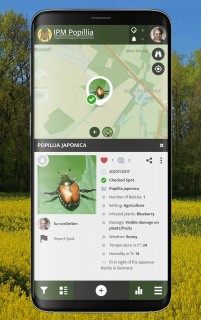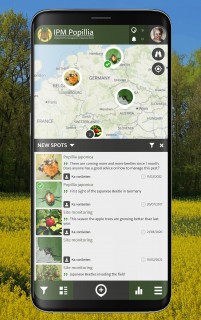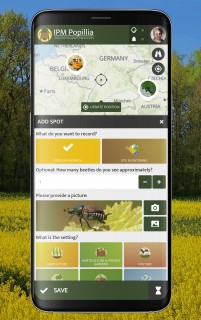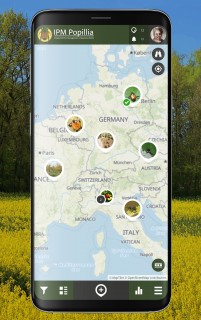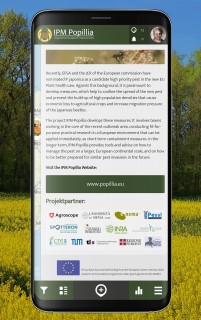A deliverable is done. We just have released the first version of the IPM Popillia Citizen Science App! This first release marks a significant achievement; from now on, our consortium members and farmers on location can start recording Popillia japonica sightings on their smartphones and contribute to the IPM Popillia data-set. The App running on the SPOTTERON Citizen Science App Platform is already available for public download for Android and iPhones. If you want to try it out yourself, simply download the App and register a Citizen Science Account on the platform.
A first data structure for recording sightings of this invasive species
In the App's first version, two kinds of main categories are at the moment available for contributing data. On the one hand, the App allows recording occurrences of the Japanese Beetle, Popillia japonica. Additional data attributes are present for providing estimates of the number of individuals and location information, agricultural crops and other host plants inflicted, and the amount of damage. Also, the App allows the recording of current weather conditions and atmospherical data at the time of the observation.
As a second level, the Citizen Science App allows the ongoing recording of change at a location. Every user can add an agricultural field or other settings on the map, and users in the App can add ongoingly new observations and status reports to the map point. The data generated by that allows monitoring the crop damage over time and how applied measures against the Popillia infestation affect the population or lessen the deterioration of the crops or plants.
Join the Horizon 2020 Citizen Science App Community!
Since Citizen Science is not only about data recoding, many more features come to the App from the SPOTTERON platform. First data visualizations, which can be extended in the project, are available to see spatial distributions, and more features round up the immerse Citizen Science experience. A complete social community is integrated into the toolkit, and users can comment, interact, and exchange information, bringing the power of social communities to a Horizon 2020 funded project.
Besides the Smartphone Apps, there is already a Web-Application integrated here on the popillia.eu website, allowing adding data points and browsing the data-set via the Browser on desktop or a laptop PC.
If you are situated in a region or close by to a Popillia japonica infestation, download the App onto your phone and start contributing to this important project!
Related Posts
By accepting you will be accessing a service provided by a third-party external to https://www.popillia.eu/




